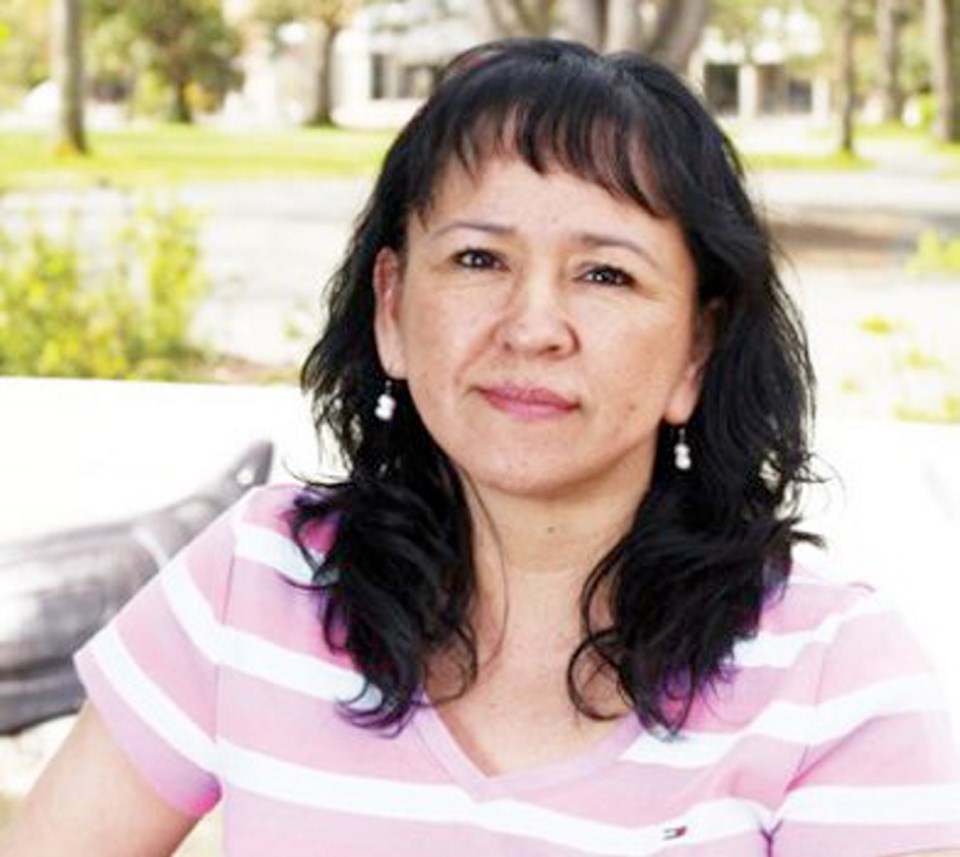First Nations and Métis leaders from across the Island joined the city’s homeless and advocates in an emotional ceremony at the Esquimalt Big House Wednesday, where they committed to solving urban aboriginal homelessness.
“We are here to lift you up and show you that we care,” said Fran Hunt-Jinnouchi, a First Nations educator, consultant and former chief contracted by the Greater Victoria Coalition to End Homelessness to find culturally appropriate solutions to aboriginal homelessness.
More than a dozen chiefs and aboriginal leaders signed a drum to launch the Aboriginal Coalition to End Homelessness. The new coalition is funded by the GVCEH and will eventually operate independently.
According to the GVCEH, about 30 per cent of the city’s homeless identify as aboriginal. Yet aboriginal people represent only three to five per cent of the population.
Executive director Andrew Wynn-Williams said the coalition has struggled to engage with aboriginal homeless people.
“We need to identify cultural solutions, but also to build trust and ask what those solutions should be,” Williams said. Aboriginal street liaison Bernice Kamano and Hunt-Jinnouchi met with homeless people over community meals and meetings to hear their stories.
“I heard over and over again from people who are homeless that it was not necessarily the food and housing they needed most,” Hunt-Jinnouchi said. “There was a deep spiritual desire for cultural connections. … It goes to the essence of who we are as indigenous people. To feel rooted, you have to have a sense of your community and history.”
She said feedback from leaders in First Nations communities was that “quite often, it’s not a matter of not caring but rather so much going on on reserves already.”
All recognized the importance of helping homeless community members off-reserve.
“The recurring theme was that this is so needed, that even though we’re not there and active, we know our people are hurting and need help,” Hunt-Jinnouchi said.
James Wilson, chairman of the Kwakiutl District Council, which represents 15 Kwakwaka’wakw bands on the Island, said he was surprised at how many of his people were in Victoria and homeless. He hopes the new coalition will bring more awareness to his nation and others. “We need to learn how we can work together. … I’m hoping we are going to have reports of innovative ideas on how to tackle these issues. Communication is the first step.”
For one Victoria homeless couple, having leaders from their Island nations commit to help is as meaningful as finding solutions.
“It means a lot to us for them to come,” said Marlene Williams. Originally from the Huu-ay-aht First Nation near Bamfield, she has lived on and off in Victoria.
For the past eight months, Williams, 40, and her partner Eric Amos, 36, have started each day not knowing where they will sleep that night — a friend’s couch, a shelter or a bed at the sobering centre if they’re lucky, she said. “We put our stuff in a locker. It’s long walking days with sore feet at the end,” said Williams. They both battle alcoholism and said the challenges of being homeless are especially hard for aboriginal people.
“From my band, I’ve felt dismissed because of the alcoholism and because I’m not on reserve,” Williams said.
They described being torn between two worlds and cultures, and how that alienation is compounded by racism from passersby and landlords.
“I see how people look at us and I want to say, ‘I’m not a stupid drunken native. I went to college just like you,’ ” she said.



